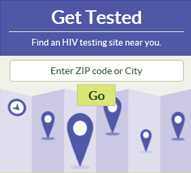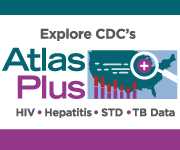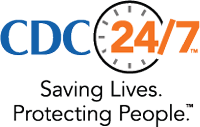STD Preventive Services
The Affordable Care Act requires coverage of recommended preventive services without cost-sharing for the following health plans:
- Non-grandfathered private health insurance plans – Most private insurance plans, including all plans on the Health Insurance Marketplace, and all group or individual health insurance plans that did not exist on March 23, 2010 or that have made significant changes to benefits, cost-sharing, or limits since that time are required to cover services without cost-sharing.1
- Medicare – All USPSTF recommended services that have a Grade “A” or “B” and that are covered by Medicare must be covered without cost-sharing.2
- Medicaid expansion plans in states that expanded (i.e. Alternative Benefit Plans) – Medicaid expansion plans offered by states that extend Medicaid eligibility to non-elderly individuals with annual incomes at or below 133 percent of the federal poverty level ($15,880 for an individual or $32,319 for a family of 4 in 2016) are required to cover services without cost-sharing.3,4
- Traditional Medicaid plans – Those states that, at their option, cover without cost-sharing in their standard Medicaid benefit package all USPSTF-recommended services that have a Grade “A” or “B” and all ACIP-recommended vaccines receive an increase in their federal medical assistance for such services and vaccines.5
In addition to these services, private and public plans may cover other preventive services without cost-sharing.
|
Preventive Service |
Recommending Authority |
Eligible Populations and Service Specifics |
Health Insurance Plans That Cover the Service Without Cost-Sharing |
|---|---|---|---|
|
Chlamydia Screening |
USPSTF |
The USPSTF recommends screening for chlamydia in sexually active women age 24 years and younger and in older women who are at increased risk for infection. This also applies to pregnant women.6 (See Final Recommendation Statement: Chlamydia and Gonorrhea: Screening - US Preventive Services Task Force for additional information.) |
|
|
Bright Futures |
STI screening for sexually active adolescents (11-21 years of age) as per recommendations in current edition of AAP Red Book.7 |
|
|
|
Syphilis Testing |
USPSTF |
Screening persons at increased risk for syphilis infection.9 Screening all pregnant women for syphilis infection.10 (See Final Update Summary: Syphilis Infection in Nonpregnant Adults and Adolescents: Screening - US Preventive Services Task Force for additional information.) |
|
|
Bright Futures |
STI screening test for sexually active adolescents (11-21 years of age) as per recommendations current Red Book. |
|
|
|
Gonorrhea Testing |
USPSTF |
The USPSTF recommends screening for gonorrhea in sexually active women age 24 years and younger and in older women who are at increased risk for infection. This also applies to pregnant women.6 (See Final Recommendation Statement: Chlamydia and Gonorrhea: Screening - US Preventive Services Task Force for additional information.) |
|
|
Bright Futures |
STI screening for sexually active adolescents (11-21 years of age) as per recommendations current Red Book.7 |
|
|
|
Ocular Prophylaxis for Gonococcal Ophthalmia Neonatorum |
USPSTF |
Prophylactic ocular topical medication for all newborns for the prevention of gonococcal ophthalmia neonatorum.11 (See USPSTF – Clinical Considerations for Ocular Prophylaxis for Gonococcal Opthalmia Neonatorum for additional information.) |
|
|
Human Papillomavirus Testing |
HRSA – Women’s Preventive Services |
High-risk human papillomavirus DNA testing in women with normal cytology results. Screening should begin at 30 years of age and should occur no more frequently than every 3 years.12 (See Clinical Preventive Services for Women: Closing the Gaps for additional information.) |
|
|
Human Papillomavirus Vaccination |
Advisory Committee on Immunization Practices (ACIP) |
9-valent, 4-valent, or 2-valent HPV vaccines can be used for routine vaccination of females 11 or 12 years, and females 12-26 years who haven’t been vaccinated previously or who have not completed the 3-dose series. 9-valent or 4-valent HPV vaccine can be used for routine vaccination of males 11 or 12 years and males through 21 years who have not been vaccinated previously or who have not completed the 3-dose series. |
|
|
Sexually Transmitted Infection (STI) and HIV Prevention Counseling |
USPSTF |
Intensive behavioral counseling to prevent sexually transmitted infections (STIs) for all sexually active adolescents and for adults at increased risk for STIs.14 (See USPSTF Clinical Considerations for Behavioral Counseling to Prevent STIs for a discussion of risk factors.) |
|
|
HRSA – Women’s Preventive Services |
Annual counseling on sexually transmitted infections for all sexually active women. Annual counseling for HIV infection for all sexually active women.12 (See Clinical Preventive Services for Women: Closing the Gaps for additional information.) |
|
NOTE: Programs in states that are implementing “alternative” means to expand Medicaid (i.e. expanding Medicaid through “premium assistance”) should be mindful of state decisions regarding coverage and cost-sharing of these preventive services for newly eligible Medicaid enrollees.
1 Preventive Services Covered Under the ACA. U.S. Department of Health & Human Services.
2 Patient Protection and Affordable Care Act, Pub. L. No. 111-148, §4104, 124 Stat. 125, 557-558 (2010)
3 Patient Protection and Affordable Care Act, Pub. L. No. 111-148, §2001, 124 Stat. 121, 271-272 (2010)
4 Medicaid and Children's Health Insurance Programs: Essential Health Benefits in Alternative Benefit Plans, Eligibility Notices, Fair Hearing and Appeal Processes, and Premiums and Cost Sharing; Exchanges: Eligibility and Enrollment. 78 FR 42159; 42224-42226
5 Patient Protection and Affordable Care Act, Pub. L. No. 111-148, §4106, 124 Stat. 125, 559-560 (2010)
6 Final Recommendation Statement: Chlamydia and Gonorrhea: Screening. December 2014. U.S. Preventive Services Task Force.
7 2016 Recommendations for Preventive Pediatric Health Care. Committee on Practice and Ambulatory Medicine and Bright Futures Periodicity Schedule Workgroup. Pediatrics 2016;137.
8 Pub 100-03 Medicare National Coverage Determinations. Chapter 1, Section 210.10. Centers for Medicare and Medicaid Services. Issued 2012 January 26.
9 Final Recommendation Statement: Syphilis Infection in Nonpregnant Adults and Adolescents: Screening. June 2016. U.S. Preventive Services Task Force.
10 Final Evidence Review: Syphilis Infection in Pregnancy: Screening. U.S. Preventive Services Task Force.
11 Final Evidence Review: Ocular Prophylaxis for Gonococcal Ophthalmia Neonatorum: Preventive Medication. U.S. Preventive Services Task Force. July 2011.
12 Women’s Preventive Services: Required Health Plan Coverage Guidelines. Health Resources and Services Administration.
13 Use of 9-Valent Human Papillomavirus (HPV) Vaccine: Updated HPV Vaccination Recommendations of the Advisory Committee on Immunization Practices. Centers for Disease Control and Prevention. MMWR March 27, 2015 / 64(11);300-304.
14 Final Recommendation Statement: Sexually Transmitted Infections: Behavioral Counseling. December 2014. U.S. Preventive Services Task Force.
- Page last reviewed: December 23, 2016
- Page last updated: December 23, 2016
- Content source:


 ShareCompartir
ShareCompartir


